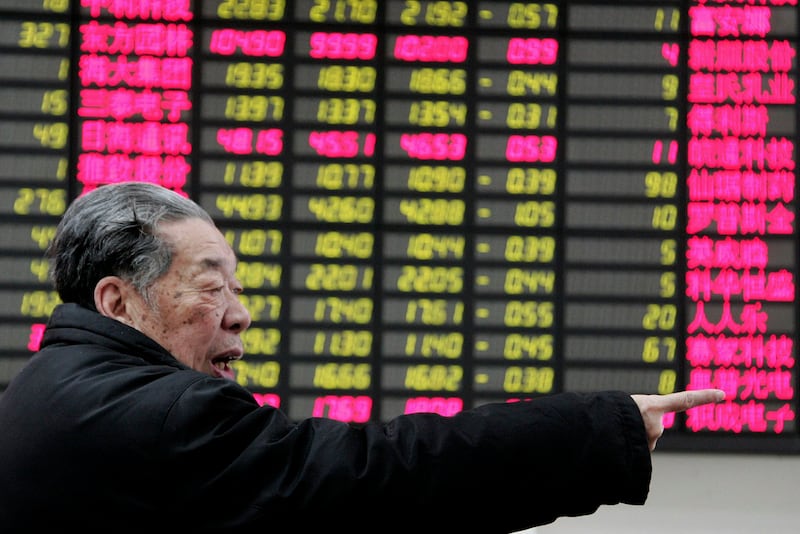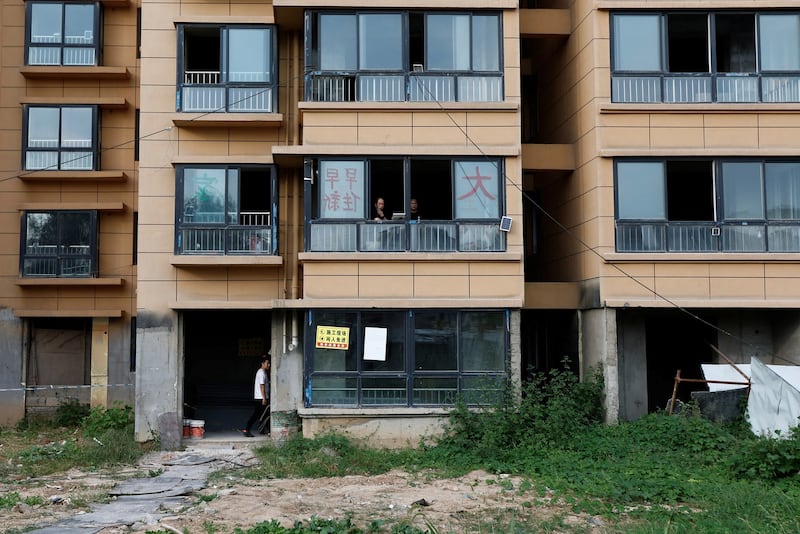Moody’s has put two of China’s leading developers on review for possible downgrades in the wake of downgrading the country’s entire property sector to negative territory last week.
China Vanke Co and China Jinmao Holdings Group, two of China’s most well-known builders, are now in the spotlight, while seven other Chinese builders had their outlooks downgraded to “negative” on Thursday, just a week after the ratings firm cut the property sector’s outlook to negative from stable.
Moody’s said it thought property sales were unlikely to rebound despite government support in the form of relaxed regulations on mortgages.
The latest moves by the ratings firm come after months of bad news from China’s limping property market – a crisis exemplified by giant developer China Evergrande Group, the world’s most indebted property developer – and more recently Country Garden, which has been frantically negotiating for time with creditors.
In a further blow to Evergrande, the company’s stocks plunged 25% earlier this week after staff of its wealth management arm were detained in the course of an investigation into wrongdoing.

Developers with offshore bond commitments are also suffering from the strong U.S. dollar/weak yuan.
The Chinese yuan has depreciated by about 10% this year against the dollar.
According to one report, some 26% of Evergrande's borrowings are in U.S. or Hong Kong dollars – the latter is pegged to the U.S. currency – and eyes are also on Guangdong Province developer Country Garden, which missed US$22.5 million in dollar-denominated interest payments last month.
Meanwhile, despite some recent news that seemed to suggest that government moves to inspire consumer confidence were yielding some results, Moody’s said it expected sales to continue to contract and new measures to be short-lived in effect.
In a series of social media comments, Shehzad Qazi, managing director of the China Beige Book, said that housing prices were close to contracting or actually going down in price, while commercial property faced oversupply and plummeting values.
"Our warning that China is not collapsing doesn't mean its economy is doing well. Property, for one, is a total mess," the Beige Book commented.
Diminishing returns
Analysts agree that China’s broader economy is inextricably connected to its property market – which may account for as much as 30% of GDP – and that the property market is now oversupplied. Ironically, at the same time, a lot of it has been paid for, or is being paid for, and hasn’t been built.
In short, prices in what was a speculative market are no longer rising – for pre-owned homes they're going down – and as Michael Pettis, a China-focused economist said last week, "Without reviving expectations of continued price increases, you can't revive a speculative market when it starts to deflate.
“For years, the main reason for buying real estate in China has been expectations that prices could only rise. Those days are probably permanently over.”
Developers are cash-strapped in the absence of feeding-frenzy consumers, and despite a program initiated by the People’s Bank of China in November last year to provide interest-free loans to state owned banks to bail out stalled property developments, the banks don’t want the money.
"For Chinese banks, the downside of lending to distressed property projects far outweighs the upside," Larry Hu, chief China economist at Macquarie, told the Financial Times.

For Beijing, the priority is dealing with what are likely thousands of stalled off-plan property projects countrywide – one Shanghai real-estate analytics firm estimates 2,000 projects this year alone – as “owners” of unfinished properties refuse to pay mortgages and protest.
In a housing market in which pre-sales rule, payment strikes by homebuyers are leading to further difficulties for developers, despite emergency talks between China’s banks and property sector players that have been underway for more than a year.
This week Reuters reported that despite huge pressure on the authorities to address the problem of so-called "rotting homes" – unfinished residences – that now litter China's urban landscape, UBS predicts only a 50-60% recovery of the sector's peak several years ago due to population decline and slowing urbanization.
Edited by Mike Firn and Elaine Chan.

